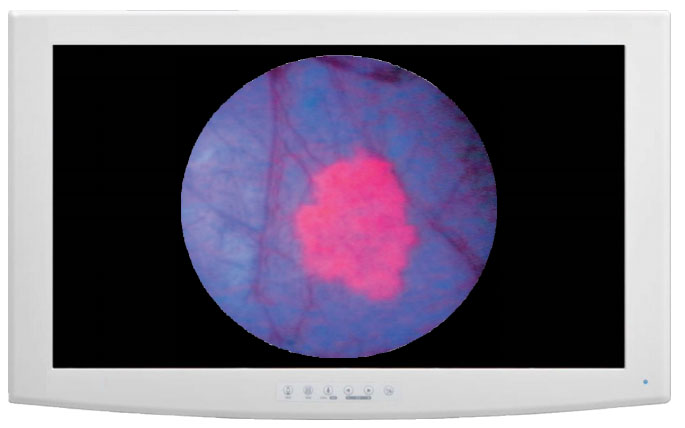The Life Sciences Report: Jim, at the recent World Resource Investment Conference in Vancouver, your talk was called, "How I Learned to Stop Worrying and Love the Venture Markets." How does this translate into pursuing profit in the life sciences?
Jim Letourneau: "Venture" is short for adventure. Many life sciences companies are developing new technologies that directly affect people's lives. It is an exciting field to invest in, but it is also risky.
However, investing in the life sciences poses a very different type of risk than, say, going into mining and energy projects. Commodity-based companies are at the mercy of prices that they have little or no control over. A recent example of sensitivity to commodity price fluctuations can be seen in the dramatic downturn in the stock of potash companies after a dispute over marketing between Russia's Uralkali (URKA:RTS; URKA:MCX; URKA:LSE) and Belaruskali (state-owned) led to fears that Uralkali would flood the market with potash at reduced cost.
Life sciences companies don’t have this problem. There is a constant demand. People will pay a lot of money to live longer, or to make their quality of life better. It's a more stable business sector than gold or oil.
TLSR: You've advised readers of your Big Picture Speculator to examine the biotech markets while waiting for precious metals and energy holdings to pick up steam.
JL: Biotech is currently underfollowed and ignored, but the sector has just as much upside as mining and oil and gas. There are some great Canadian and U.S. companies out there.
TLSR: Do you have any names for us today?
JL: One that I have followed for a while is biOasis Technologies Inc. (BTI:TSX.V). BiOasis has a technology, Transcend, which allows drugs to be conjugated with therapeutic protein molecules (p97 protein/melanotransferrin) so that they can cross the blood-brain barrier. This is a big hurdle: A lot of a drug can be injected into the human body, but only a small percentage of it will cross into the brain. Blood-brain permeability is a big issue for treating brain disease.
TLSR: Who has biOasis partnered with?
JL: BiOasis has partnered with some big pharmas, including Shire Human Genetic Therapies Inc. (Shire Plc [SHPGY:NASDAQ; SHP:LSE]), AbbVie Inc. (ABBV:NYSE), Medimmune Ltd. (a division of AstraZeneca Plc [AZN:NYSE]), and UCB S.A. (UCB:BSE).
TLSR: BiOasis has an Alzheimer's disease product, too—or am I forgetting something?
JL: The correlation between serum levels of p97 and Alzheimer's disease was first made by professor Wilfred Jefferies and his colleagues at the University of British Columbia. The company was developing Cognitest, a blood test for the diagnosis of Alzheimer's disease, but has stopped putting corporate resources into Cognitest. Dr. Jefferies will continue to evaluate Cognitest in a small number of freshly collected human brain samples.
TLSR: Were the researchers using mouse brains to test the blood-brain barrier?
JL: Yes. They used fluorescence imaging to determine the amount of drug penetration into brain tissue.
TLSR: Any other biotech names that attract you?
JL: I like a company called Verisante Technology Inc. (VRS:TSX.V) because it has an amazing spectroscopic device that detects skin cancer with good accuracy. The current state of the art in skin cancer detection is a visual inspection; if something looks suspicious, a biopsy is ordered. Verisante's skin cancer device is looking good, and new data should come out shortly on a device that detects lung cancer, which could be exciting news.
"Biotech is currently underfollowed and ignored, but the sector has just as much upside as mining and oil and gas."
Verisante's skin cancer device, called Aura, is game-changing technology for dermatologists. Yet the company's share price is low and its market cap is about $20 million ($20M). One reason for the undervaluation is that the skin cancer detection instrument has not yet been approved by the U.S. Food and Drug Administration (FDA). The firm is talking to consultants about how to best get its device into the regulatory approval system. That can be a big challenge for a small company. A device may be approved in Canada, Europe, Japan and China, but the big market is the U.S., and that requires FDA approval.
TLSR: Any other promising companies currently in the clinical trial and approval cycle?
JL: TSO3 Inc. (TOS:TSX; TSTIF:OTCPK) has a revolutionary sterilization technique called Sterizone. It uses ozone to sterilize instruments that are otherwise difficult to sterilize. The company was taking one route for FDA approval when the FDA suggested that TS03 use a different approval pathway called a de novo classification (which means that the product is new and unique). But there were hurdles with that method, so TS03 has returned to the normal 501(k) regulatory approval route.
Investors are asking, "What the heck is going on?" The pathway change created some confusion, and with confusion the market gets a little nervous—which didn't help TSO3's share price. The truth is that TSO3 is working hard to get the sterilization method approved by the fastest method possible, and it is the FDA's internal flip-flop that has temporarily confused the market.
TLSR: Does TS03 have competitors? Is there a race to get its system approved?
JL: Its competition is simply the status quo of sterilization methods, such as heating in an autoclave. The problem is that intricate medical devices do not stand up well to heat sterilization. TSO3's sterilization method is faster; it is used with good results in hospitals in Canada.
But until Sterizone has FDA approval, there is a question mark hanging over it. It is not a big question mark because the technology is known to work. But until the FDA approves it, investors tend to stare at their shoes and mutter, "Something might be wrong with it, we don't know what, but. . ." That is the big challenge for biotech investors, learning how to be patient.
TLSR: What about the cardiovascular sector? Do you have any names there?
JL: I really like a little company called VentriPoint Inc. (VPT:TSX.V), which has a $13M market cap. Its Angelo (VMS) analysis system uses ultrasound images to construct images of the heart in 3-D. The device is cheaper and quicker than an MRI scan. The doctor can do the analysis in his office, as opposed to sending a patient to a lab and incurring a more expensive diagnostic procedure.
"Until the FDA approves a technology, investors tend to stare at their shoes and mutter, 'Something might be wrong with it, we don't know what, but. . .'"
Ventripoint has been under the radar, but a paper about its work on pulmonary arterial hypertension was just published in the Journal of the American Society of Echocardiography, which gives the device a stamp of credibility. Ventripoint has placed its equipment in prestigious hospitals with researchers who are going to publish more papers. After Ventripoint gets FDA approval, it makes sense that a big company will buy it out.
TLSR: Are there any firms in the arteriosclerosis game that you follow?
JL: Yes, and one of them just announced trial results and got hammered. It is a company out of Calgary called Resverlogix Corp. (RVX:TSX), in which I am keeping my shares. Before the trial results were announced, the price was more than $3/share. After Resverlogix announced the disappointing results for its compound, RVX-208, the price fell to $0.20/share and has bounced back up to about $0.60/share.
TLSR: What were the problems with the trial results?
JL: The RVX-208 trial did not meet its primary endpoint. The trial used intravascular ultrasound to measure arterial wall thickness. The endpoint was not what the firm had projected. But, a lot of the data was trending, and if the trial had run another three months, Resverlogix might have met the endpoint. Now the company is faced with the hard road of pushing that trial rock back up the hill to prove that the compound does, indeed, work. Resverlogix is not a big pharmaceutical company, so it cannot afford to run long trials.
TLSR: Does Resverlogix have enough cash on hand to get through the task of achieving regulatory approval?
JL: It has a variety of cash sources to draw on. The company is obviously not in the best bargaining position with its share price down. But the bigger picture is that the RVX-208 compound is drawn from a whole family of epigenetic compounds that Resverlogix has been busy patenting. Just before it announced the RVX-208 trial results, the company spun out a lot of its intellectual property into a different company. It kept the cardiovascular applications in Resverlogix.
The spinout is called Zenith Epigenetics Corp. It is a private, early-stage company, and it may want to stay private. The shareholders of Resverlogix lost a lot of value when the trial results were released, but they were given shares in Zenith Epigenetics, and there could be exciting developments coming out of that operation down the road.
"That is the big challenge for biotech investors, learning how to be patient."
One thing I look for is how robust a company is—can it bounce back from misfortune? Resverlogix bounced back from $0.20/share to $0.60/share because people figured out that the company is not totally dead. Following that trend, I like an exciting company called Neptune Technologies & Bioressources (NTB:TSX; NEPT:NASDAQ). Neptune had an unfortunate accident in November 2012: Its manufacturing plant blew up and killed some workers, which is horrible news. Yet today the company's shares are close to where they were before the accident. There is a robust demand for Neptune stock because the market likes the company's products, and also liked how it handled adversity.
Neptune spun out a company called Acasti Pharma Inc. (ACST:NASDAQ; APO:TSX) and, as parent, Neptune still owns shares in Acasti. Acasti Pharma's share prices have been on fire!
Acasti transforms krill from the Antarctic Ocean into a drug. To market a drug, a company must prove that not only does the product not hurt people, it actually helps them. A lot of evidence suggests that krill oil changes people's lipid profile by increasing the amount of good cholesterol and decreasing the amount of bad cholesterol.
TLSR: How does one turn krill into oil?
JL: Neptune has a patented process that crushes the krill and leaches out the oil with acetone. But what's nice about Neptune is that comparable companies are enjoying market caps of well over $1 billion ($1B). The Neptune/Acasti dream is to ratchet up to a high market cap with the krill oil venture.
TLSR: Biofilms are also a hot topic in the life sciences space.
JL: For biofilms, I like Kane Biotech Inc. (KNE:TSX.V). The market cap is about $12M and the stock is cheap. Kane is attractive because biofilms are the scourge of medicine: They feed bacteria that cause infections in wounds. Biofilm-eating bacteria form a protective layer over themselves, making it hard to sanitize hospital equipment. And when disinfectants cannot penetrate the biofilm, they are ineffective against infections. Kane's product breaks up biofilms and allows disinfectants to pass through and sanitize medical equipment. The company recently completed a contract with the United States Army Dental and Trauma Research Detachment to develop an antibiofilm-antimicrobial wound gel formulation. It reduced more than 95% of biofilm-embedded wound-associated bacteria as compared to the commercial wound gel, which showed only a 50% reduction.
And recently, Kane has rolled out a product—this will sound a bit weird—for dogs that have bad breath. The smell comes from bacteria and plaque growing on the dog's teeth.
TLSR: Tell us more.
JL: The product is called StrixNB, which is added to the dog's drinking water. It reduces bacteria in the mouth that forms plaque and tartar buildup. Kane does not intend to become a massive manufacturer of the product; the company will happily license it out to a big animal supplier. But Kane did test the market for StrixNB in Canada, and got really good feedback. The product sells well because it works. People happily spend $400/year to scrape and clean their dogs' teeth. This product is cheaper and much less painful for the dogs.
The next leap is that the product will likely work for humans! Animal testing has proven that the formulation is not toxic or harmful to humans. If humans start using StrixNB, Kane will make a fortune.
TLSR: That would be truly revolutionary.
JL: Yes, and it is all under the radar. The bad breath product has been rolled out for dogs, which is a pretty big deal. People spend a lot of money on their pets. But the really big market is humans.
TLSR: If it works for dogs, it should work for humans.
JL: I happen to know humans who use it; I am tempted to try it myself.
TLSR: Let's talk about oncolytic viruses. Can you suggest any names in this space?
JL: A good firm in the oncolytic virus space is called Oncolytics Biotech Inc. (ONCY:NASDAQ; ONC:TSX). The company is based in Alberta and has been around for a very long time. Oncolytics makes a human reovirus, called Reolysin, that it can inject into tumors to kill cancerous cells. Oncolytics has had some good results with head-and-neck tumors, and is conducting ongoing phase 2 clinical trials with partial results released. The criticism is the company is a bit selective in what trial results it chooses to release. But regardless, it has raised a lot of money.
TLSR: What is its market cap?
JL: It is $233M—which is a big number.
TLSR: To close, can you comment on any differences between Canadian and U.S. regulatory approval processes from an investment point of view?
JL: The big difference is that the FDA is the big kahuna, and getting FDA approval takes longer. That is the big challenge for a lot of innovative medical technologies and for a lot of drugs. Approvals in other countries, such as Canada, occur more rapidly. Testing regimes for the FDA are expensive, and involve a lot of bureaucratic back and forth, which tends to stall the evolution of the market cap for small companies.
Just because investors like a product does not mean that the trial results are going to be favorable. Of course, the fact that a medical device is already approved for use in other jurisdictions should derisk them to a large degree for savvy investors. I simply do not know any examples of products that work well for patients and are cost-effective that were not approved by the FDA in the end.
TLSR: Thank you, Jim.
JL: Good day, Peter.
Jim Letourneau is the founder and editor of the Big Picture Speculator and is a geologist living in Calgary, Alberta. He is an early-stage investor in energy, metals, biotech and technology companies. He speaks at investment conferences across North America.
Want to read more Life Sciences Report interviews like this? Sign up for our free e-newsletter, and you'll learn when new articles have been published. To see a list of recent interviews with industry analysts and commentators, visit our Streetwise Interviews page.
DISCLOSURE:
1) Peter Byrne conducted this interview for The Life Sciences Report and provides services to The Life Sciences Report as an independent contractor. He or his family own shares of the following companies mentioned in this interview: None.
2) The following companies mentioned in the interview are sponsors of The Life Sciences Report: Oncolytics Biotech Inc., Verisante Technology Inc., biOasis Technologies Inc. Streetwise Reports does not accept stock in exchange for its services or as sponsorship payment.
3) Jim Letourneau: I or my family own shares of the following companies mentioned in this interview: biOasis Technologies Inc., Kane Biotech Inc., Ventripoint Diagnostics Ltd., Resverlogix Corp., TS03 Inc. I personally am or my family is paid by the following companies mentioned in this interview: None. My company has a financial relationship with the following companies mentioned in this interview: None. I was not paid by Streetwise Reports for participating in this interview. Comments and opinions expressed are my own comments and opinions. I had the opportunity to review the interview for accuracy as of the date of the interview and am responsible for the content of the interview.
4) Interviews are edited for clarity. Streetwise Reports does not make editorial comments or change experts' statements without their consent.
5) The interview does not constitute investment advice. Each reader is encouraged to consult with his or her individual financial professional and any action a reader takes as a result of information presented here is his or her own responsibility. By opening this page, each reader accepts and agrees to Streetwise Reports' terms of use and full legal disclaimer.
6) From time to time, Streetwise Reports LLC and its directors, officers, employees or members of their families, as well as persons interviewed for articles and interviews on the site, may have a long or short position in securities mentioned and may make purchases and/or sales of those securities in the open market or otherwise.




























































